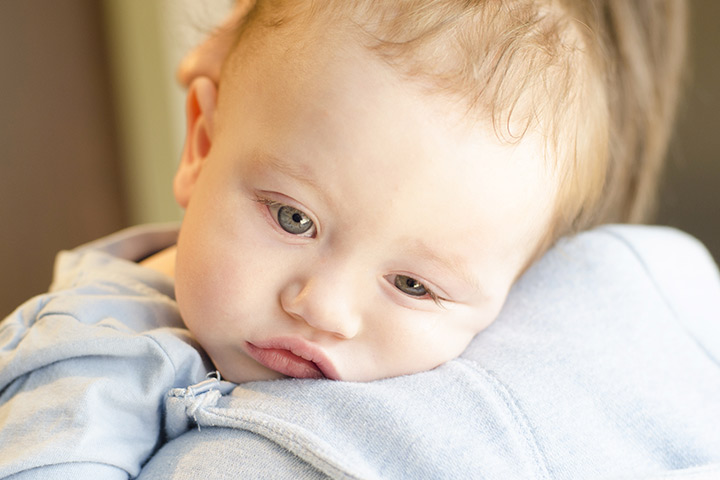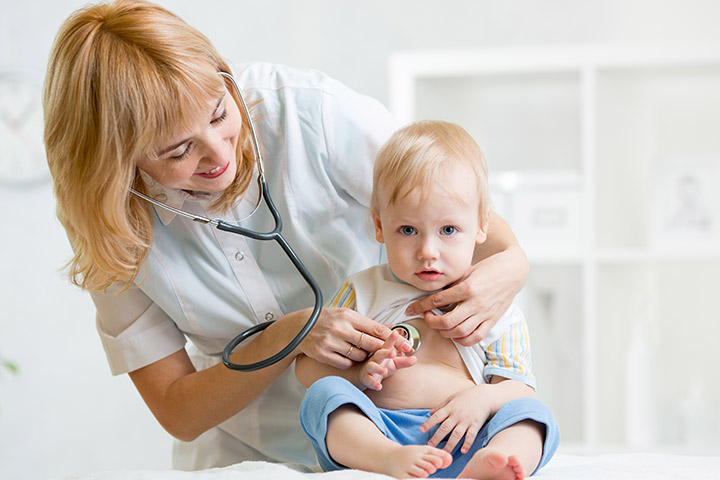
Image: Shutterstock
When you’re the mother of a newborn baby, the smallest of things can easily upset you and make you worried, and the world doesn’t expect any less of you, either.
If you’re a first-time mom, it can be quite challenging, especially when you don’t know what exactly is happening to your baby. When it comes to fevers, specifically, they can cause quite a scare.
But, worry no more, as we now tell you the most important things you need to know when your baby has a fever.
1. What Exactly Is A Fever?
This is the first thing one needs to know. A hot body and red, flushed skin don’t always signify a fever. The heat can be because of the kind of clothes the baby is wearing, physical exertion or even just a warm bath.
What is actually considered as fever is a temperature above 100.4 degrees Fahrenheit. Anything up to that is completely normal, even for the youngest baby.
2. Hold On; It’s Not Just Any Temperature.
That’s right. An underarm temperature of 100.4 degrees can still not be considered as a fever. The most accurate temperature is gauged from the rectum, called the rectal temperature. This is particularly accurate for babies that are three months old or younger (1).
Rectal temperature can be gauged using specific rectal thermometers, and is as close as possible to the core temperature of the baby.
It is important to know signs to look out for, which would indicate a fever. This will help you handle it better, with more confidence and readiness. Given below are the most common signs of fever in babies.
- Not sleeping properly
- Not eating properly
- Lack of interest in playing
- Not very active
- Seizures or convulsions
3. Pay Attention To Your Baby’s Behavior.
There are times when a baby would not have a fever by definition, but can still be acting strange – showing signs of exhaustion, crying and wanting to be held consistently.
There are other times when the temperature would read a whopping 105 degrees, but your baby is still playing happily without any sign of being sick. Therefore it is imperative to treat the symptoms, and not just the number that you read on the thermometer.
Being a mother, you’ll be the best judge of what is normal and what is not for your baby. Trust that mother’s instinct and go with it!
4. Hydration, Hydration, Hydration.
There are more than enough resources on the Internet to tell the importance of staying hydrated, not just for adults but for any living creature on the planet.
Babies are no different. If your baby has a fever, it is of utmost importance to keep him/her hydrated with breast milk or baby formula. Preventing dehydration can go a long way in ensuring your baby’s recovery from the fever.
5. When Should You Call A Doctor?
For babies younger than three months, it is advisable to call a doctor immediately at the onset of a fever.
For older babies, if the fever is accompanied by vomiting, diarrhea, rashes or seizure, you must call a doctor immediately.
6. What Kind Of A Fever Is It?
Now that we have figured out whether or not there is a fever, with the help of a doctor, you can also determine what kind of fever it is.
If your baby has an illness caused by a virus and your baby’s body is fighting it off, it is a viral fever. This can be anything from flu to common cold. Viral fevers usually last about three days and then subside.
When there is a bacterial infection such as a urinary tract infection or bacterial meningitis, it will result in bacterial fever. These are less common than viral fevers but are more concerning. If left unattended, bacterial fever can lead to serious illness.
7. Lastly, Fever Is A Healthy Response.
Despite the immediate reaction to your baby’s fever, here’s what should make you feel better: a fever is a healthy response. A fever is a sign that your baby’s immune system is all good and working just fine.
Knowing these basic and important facts about your baby’s fever, you can now be rest assured that if and when it happens, you’re armored with the knowledge and the confidence you need to take care of your baby the way only a mother can!
















